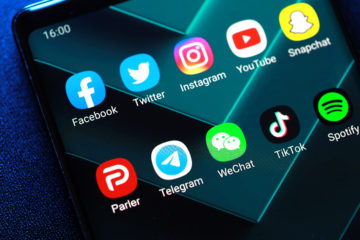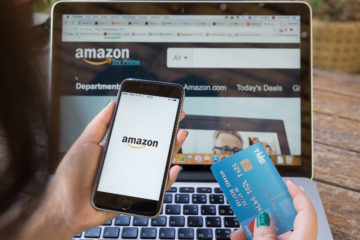In a new article at Real Clear Markets Norm Singleton, Senior Fellow at the Market Institute, sheds light on the ongoing debate surrounding TikTok. Singleton addresses the significant role TikTok plays in connecting millions of Americans, emphasizing its impact on social interactions and small businesses. With over 150 million users, TikTok has become a powerhouse in the social media landscape. However, as the 2024 election approaches, Singleton unravels the political undercurrents seeking to ban TikTok, questioning the motives behind such calls and advocating for the preservation of constitutional rights.
He writes:
“As you read this, millions of Americans are coming together to sing, dance, celebrate, and exchange ideas – without leaving the comfort of their homes. This will all be possible because of TikTok, which is quickly becoming the most popular social media app currently available.
More than 150 million Americans and more than five million U.S. small businesses use TikTok. They make videos, find information they can’t get on other sites, and simply enjoy themselves. But since 2024 is an election year, attention-seeking politicians will continue calling for bans on the social media app.
TikTok is singled out, because it is owned by ByteDance, which was founded in China. Therefore, banning Tik-Tok is a way to “get tough” on China. Ani-TikTok politicians claim, without a shred of actual evidence, that China is using the app to steal Americans’ data and manipulate our thinking. These politicians may be successful in cynically playing up this issue to win a few more votes, but their arguments will be rooted in baseless fear, not fact.
The danger here isn’t catchy videos. The danger is nanny state politicians who want to control social media companies so they can control what kinds of content you are allowed to see. It reminds me of the famous quote from President Reagan, “The nine most terrifying words in the English language are: I’m from the Government, and I’m here to help.”
Banning TikTok may make for a nice sound bite, but a federal government or state ban on TikTok would clearly violate the constitutional rights of Americans who have chosen to use the app as a vehicle to exercise their first amendment rights.
Luckily, some in Congress are pushing back on the hysteria. Most notably, Sen. Rand Paul (R-Ky.) has repeatedly highlighted the danger of banning an app.
“I think we should be wary of those who peddle fear. I think we should be wary of those who use fear to coax Americans to relinquish our liberties, to regulate and limit our First Amendment rights,” Paul said on the Senate floor last year. “In fact, one of the bills they’re looking at doing is broad enough that the president will be given the power to designate whatever country he sees fit to be an adversary and whatever company underneath that definition. It would basically be a limitless authority for the president to ban speech.”
Yes, there is bad content on TikTok, as there is throughout the Internet. Just doom scroll the former Twitter (now X), Facebook, or Instagram. But the good vastly outweighs the bad, and Americans are voting with their thumbs. They don’t need politicians to protect them; they can ignore any content they dislike and eventually it will go away. That’s the power of the free market. Like other apps that are financed with advertising, TikTok has no incentive to serve up content, such as Chinese propaganda, that most Americans have no interest in viewing.
TikTok is hardly the only social media company that collects data regarding its users. It is important to remember that virtually all of the data collected by an app like TikTok is already available for purchase from countless global data brokers whose business is to buy and sell such data.
And if we are worried about governments manipulating content in an attempt to control what we think, we might start with what our own government has done in recent years to dictate what speech is acceptable on social media platforms.”


